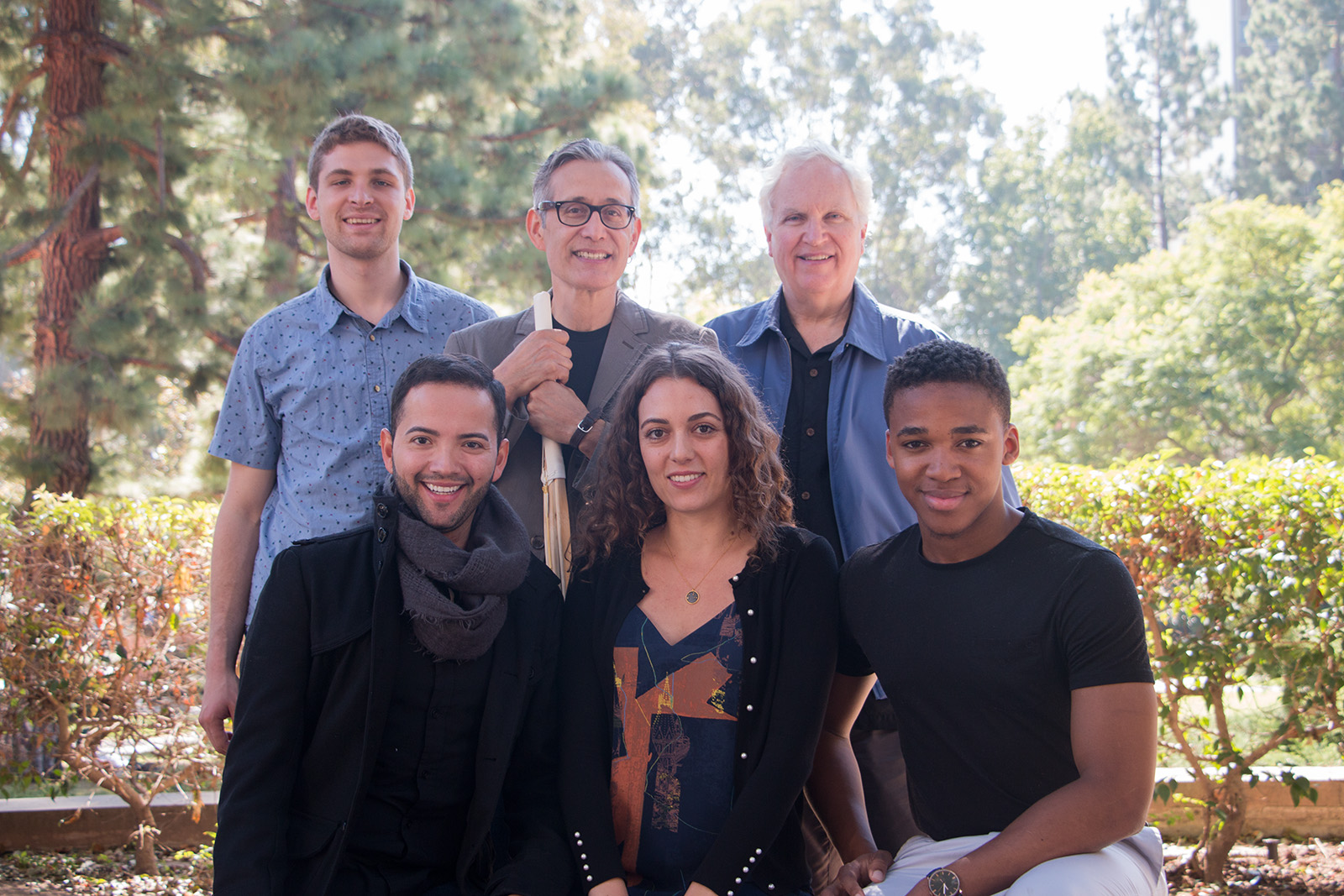TFT students, faculty discuss unique, progressive nature of Polish theater

A group of UCLA students, professors and alumni traveled to Poland for two weeks in September. The students said they encountered several differences between Polish and American theater including genres and acting styles. During their trip, they took different acting workshops in Wrocław at the Grotowski Institute and attended productions put on by Polish theaters. (Laura Uzes/Daily Bruin)
By Raunak Devjani
Oct. 5, 2017 9:30 p.m.
Poles like to joke that they are not very good at soccer, so their national sport is theater, said professor J.Ed Araiza.
And the Polish are excellent at their national sport, added Araiza, who spent some time in their country this fall.
Araiza, the head of the MFA acting program at UCLA’s School of Theater, Film and Television, visited Poland for two weeks in September with two professors, MFA students and recent alumni to study the country’s theater culture. The group participated in acting workshops and watched local plays and films to enhance their understanding of Polish arts. The students said they encountered several striking differences between Polish and American theater, including contrasting genres and production styles.
The group spent the first week of their trip attending workshops in Wrocław at the Grotowski Institute, which trains actors in methods pioneered by iconic practitioner Jerzy Grotowski. The first workshop was on an Indian martial arts and movement form called “kalaripayattu,” which relies on strenuous physical activity. For the second workshop, which focused on the voice, the students and professors sang group harmonies for up to two hours each day, Araiza said. The third workshop required both rigorous body movements and vocal exercises.
The group then spent the next week in Warsaw, where they attended screenings and performances, before meeting with directors. The students said conversing with the directors allowed them to understand how Polish theater content and processes drastically differ from those in America.
Araiza said most of the theater they saw in Poland would be classified as avant-garde or experimental in the U.S. Brett Calo, an MFA acting student, said one play they watched had garnered popularity comparable to that of “Hamilton” in the U.S., but had been running with the same cast for about 10 years and was politically charged with avant-garde elements uncommon in commercially successful and well-known American productions.
Araiza said towns in Poland have multiple professional theaters supported and subsidized by the government, allowing for a company of fully salaried actors and designers that work with them. Because of more resources including time and funding, Araiza said Poles are able to break down theatrical barriers with progressive experimentation.
“Its not that they’re more talented in Poland – even though they’re very talented,” Araiza said. “It’s that they have more resources available to take more theatrical risks.”
MFA acting student Ulato Sam said he also noticed the risk-taking quality of Polish productions, and added they do not rely heavily on elaborate costumes or complex scripts, but instead focus on telling stories with a defined purpose.
“There is this big passion to push the boundary, but not to push the boundary in the sense of doing something for the sake of being weird or out there,” Sam said. “Not all the work has to be prolific, but you have to be saying something.”
Irena Jacobs, the only MFA production design and scenic design student on the trip, said a difference she noticed between American and Polish theater was technological integration. The productions they watched made use of projections and 3-D cameras, incorporating technology in a way that was much more adventurous than how American theater uses technology, she said.
In one production the students watched a video of, the only set piece on stage was a giant eyeball that played a visual of actors performing in front of a camera in the basement below. The actors were not on stage, but could be seen through the eyeball. The students said the eyeball served as a metaphor for peering into the lives of the characters because the audience could only see the actors through the eyeball.
“The interaction with multimedia was very, very visible,” Sam said. “It lead me to wonder why, stateside, there is this dichotomy between technology and theater.”
The students also found that Poland’s postwar history heavily influenced its arts. Former theater department chair Michael Hackett said he believes Polish theater stands out because it constantly innovates, while simultaneously drawing inspiration from its past.
“There is this constant change, which is exciting because it comes from a commitment to experimentation,” Hackett said. “But there is also a continuity because they have a great sense of past, and each generation builds on the theater past of the period before – it’s two things happening at once.”
Oscar Fabela, an MFA acting student who considers himself a representative of several marginalized communities, such as the immigrant community, said he was amazed by how Poland creates its art within the context of its burdensome past, an experience that moved him to give a voice to people from marginalized communities in his art.
From the plays he saw, Sam said he observed a consistent yearning to maintain an identity of Polish theater as well as the definition of what it means to be Polish.
“You constantly see these artists trying not to emulate somebody else, but to give an incomprehensibly unique definition to what it means to be a Polish actor or a Polish playwright,” Sam said.


